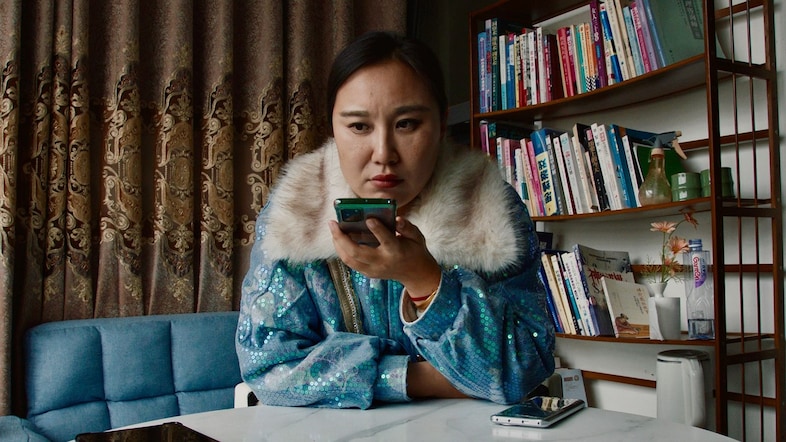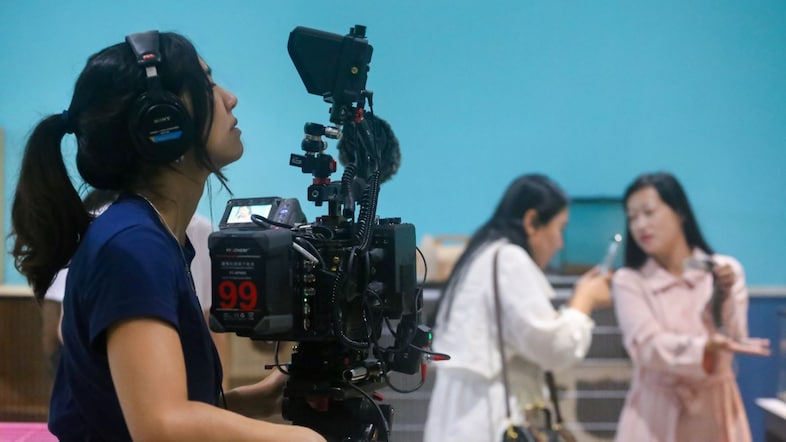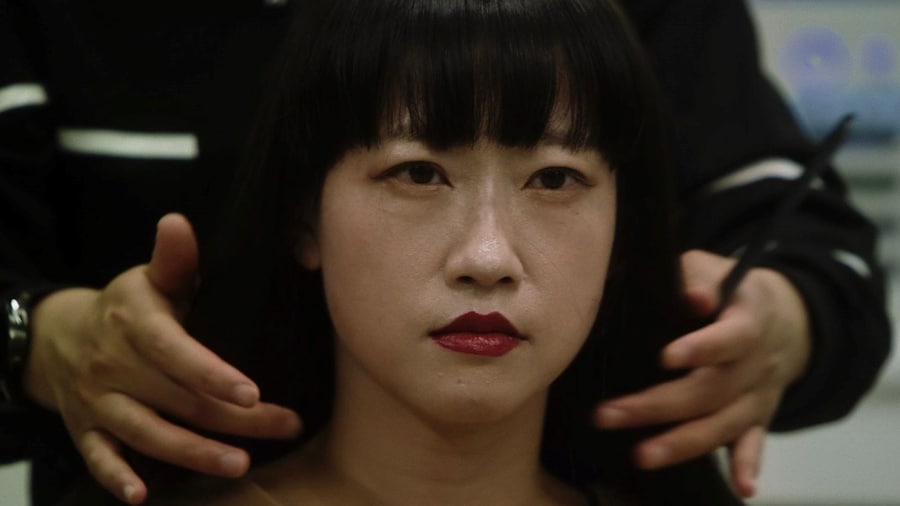Elizabeth Lo’s moving new documentary plumbs the mysteries of love and loneliness in contemporary China
In modern China, an extraordinary industry is emerging. ‘Mistress dispellers’ are professionals hired by women suspecting their husbands of infidelity, paid to discreetly enter the couple’s lives and literally dispel the mistress. “When I first read about it,” says documentarian Elizabeth Lo, “I thought, ‘This could only exist as a fiction film.’”
Lo discovered the profession as she explored ideas for her follow-up to Stray, her 2020 feature about street dogs in Istanbul. Now based in LA, the Hong Kong-born director was eager to understand more about mainland China through its “love industries”, as a way to cinematically bridge a gap between East and West – particularly as China’s influence over her home city grew.
“Filmmaking has always been this passport for me to get to know places in a really profound way,” she says. “I knew, as a Hong Kong filmmaker in such a polarised world, that if I was going to make a documentary set in China, I wanted it to be subject matter that felt universally relatable, not something that might become weaponised to drive a further wedge between the East and West.” Love was the perfect avenue. “It’s where your most wounded self is showing up, so if you’re examining those scenes, you really get to know a culture.”
Mistress Dispeller, Lo’s second documentary feature, follows one such expert named Teacher Wang as she embeds herself in the lives of Mr and Mrs Li, whose marriage in the city of Luoyang is disrupted by Mr Li’s affair. Her China-based producer, Maggie Li, scoured social media for mistress dispellers, and their discovery of Wang was like striking cinematic gold. They were able to film with a husband, wife and mistress on their first day of scouting for couples, and as the husband wept at the table with Wang, Lo was surprised to find herself deeply moved by his plight. “Despite his transgressions, I could feel my empathy expanding towards him,” she says. “I thought, there’s something really meaningful here if you, as a viewer over the course of 90 minutes, can experience your empathy stretching to places you wouldn’t normally be comfortable with.”
Having found their mistress dispeller, it took three whole years before Lo and her producers found the love triangle at the centre of the film. During shooting, Lo was essentially making two films in tandem, setting contingencies if they lost access to Wang’s clients. She filmed with six couples, giving each the option at the end to withdraw consent; she initially had to conceal the true nature of the documentary in order to let Wang work organically. With her American producer, Emma Miller, Lo also filmed several other love industries in China – including matchmakers, divorce lawyers and dating camps – in case they needed to opt for a more “essayistic survey” of love in mainland China.

After years spent filming with couples that withdrew, Mr and Mrs Li and Fei Fei gave their consent to become sole subjects of the documentary; all three were shown the film to understand Wang’s role in their lives and their portrayals in the story. Through Lo’s fly-on-the-wall approach, viewers witness long, unbroken conversations as Wang gains the husband’s trust, meets the mistress herself, and patiently mediates the love triangle towards resolution. “You see her pull one verbal string that elicits a response, and as she pulls another one it elicits another response. She’s almost like this master chess player who is ten steps ahead of her clients,” says Lo. “She’s getting them through these conversations to a place where she wants them to be, and I wanted audiences to be able to witness that.”
The immersion in such private conversations is so breathtaking, it’s easy to forget you are watching a documentary – and that intimate access was almost a happy accident of Lo’s chosen visual style, inspired by Chantal Ackerman’s film Jeanne Dielman, 23 Quai du Commerce, 1080 Bruxelles. “[Ackerman] utilises these really long, fixed-frame shots in kitchens, kitchens and bedrooms, and on a very practical level, that allowed us to leave the room,” she says. “The moment we found out where the conversations would take place, we would set up the camera and then exit.”
As a documentarian, Lo herself was struck by what people were willing to reveal on camera. “There was one couple we filmed with where, in one scene, a man is denying to his wife that he’s having an affair, and then an hour later, in a different room, with me still there as a witness, he’s making a move on his mistress in front of my camera as it’s recording.”

Even as Lo struggled to understand such behaviour, she found it informing the philosophical questions she asks in the film. As director of photography, she wanted to capture the urban loneliness of a sprawling metropolis like Luoyang, and how that pressured the central characters’ search for companionship. “That has to do with much larger questions of modernity,” she says, “and the way we’ve designed our lives to be much less tribal, and organised around nuclear family units that sometimes can’t give us everything we need. Human beings are very complex, and love is often inexplicable. How do you find it? How do you maintain it? What does it mean to be in love or not? It’s all really murky, and even from behind the camera, I had no answers, really.”
Mistress Dispeller is out in UK cinemas on August 22.
